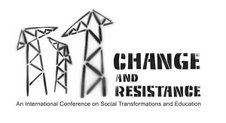Rob Watts,
Professor of Social Policy,
School of Global studies, Social Science and Planning
RMIT University
MELBOURNE, AUSTRALIA
In all Anglo-American societies there is a long and honorable tradition constituting a discourse of ‘academic freedom’ and promotion of the liberal university as a source of critical thought and the voice of social conscience. Yet what role do contemporary universities actually play post-September 11, 2001 a time some (Sitsky 2006) characterise as a ‘new dark age’? Such a point of view points to an ethico-political culture of synthesised fear, manufactured intolerance, and widespread complacency as governments generate endless and complacent talk about the need for security, freedom, self-reliance, the values of the market, and the peculiar kind of rationality said to characterise the market. This Australian case study examines both the shifts in university culture and practice and the politics of contemporary universities and universities in a time of major transformation. It explores the effects a combination of new state policies, the commercialisation of intellectual practice and certain long standing ‘constructive schemes’ specifically in at work in the social sciences and more generally in ‘academic discourse’ (Bourdieu 1997) have had on what some call the ‘enterprise university’. Avoiding nostalgia for a defunct mythic ‘golden age’ were sites of a ‘politics of freedom’ the paper argues long standing habits of mind and intellectual practice continue to obstruct the potential development of universities as sites of democratic education (Giroux 2004).
AUTHOR
Rob Watts is Professor of Social Policy at RMIT University. He is author or co-author of books like Foundations of the National Welfare State (1987), Arguing About the Welfare State (1992), Making Groups Work (1996), Discovering Risk (2004), Abuse of Trust (2005) and Sociology Australia (1999;2003;2007) and States of Violence (forthcoming)
Subscribe to:
Post Comments (Atom)

No comments:
Post a Comment